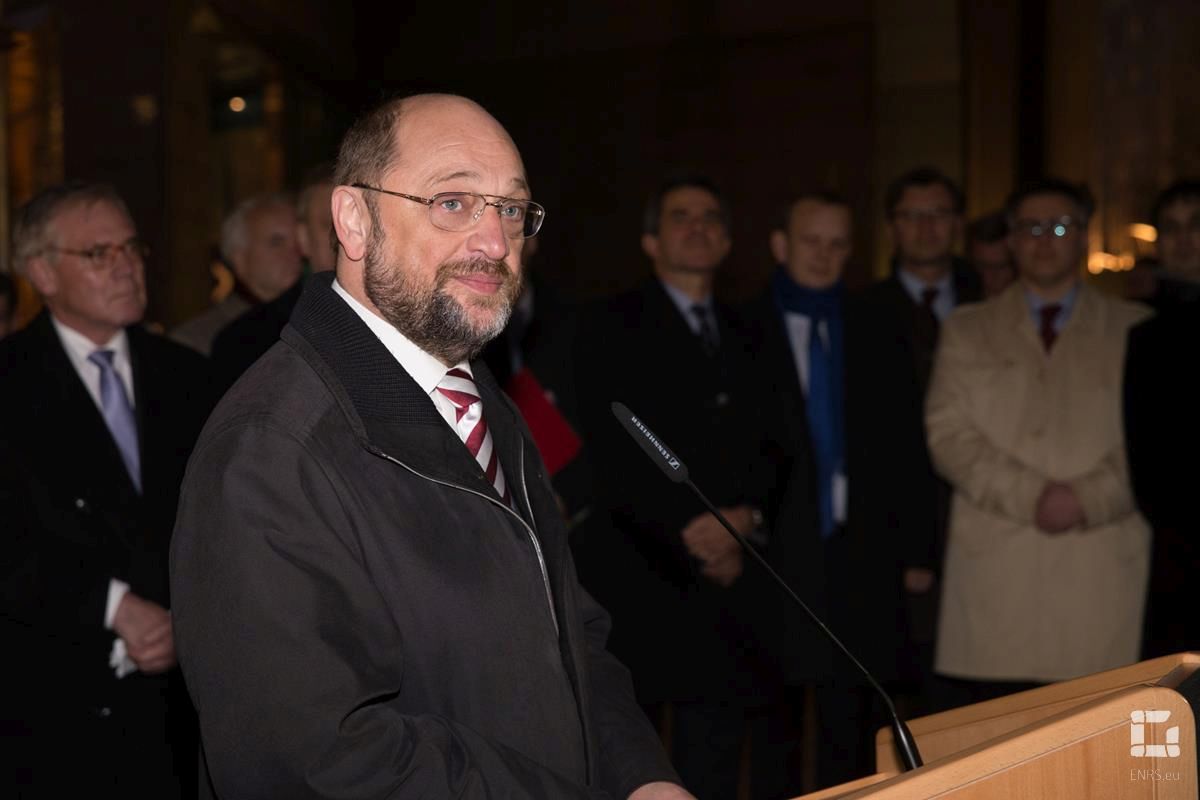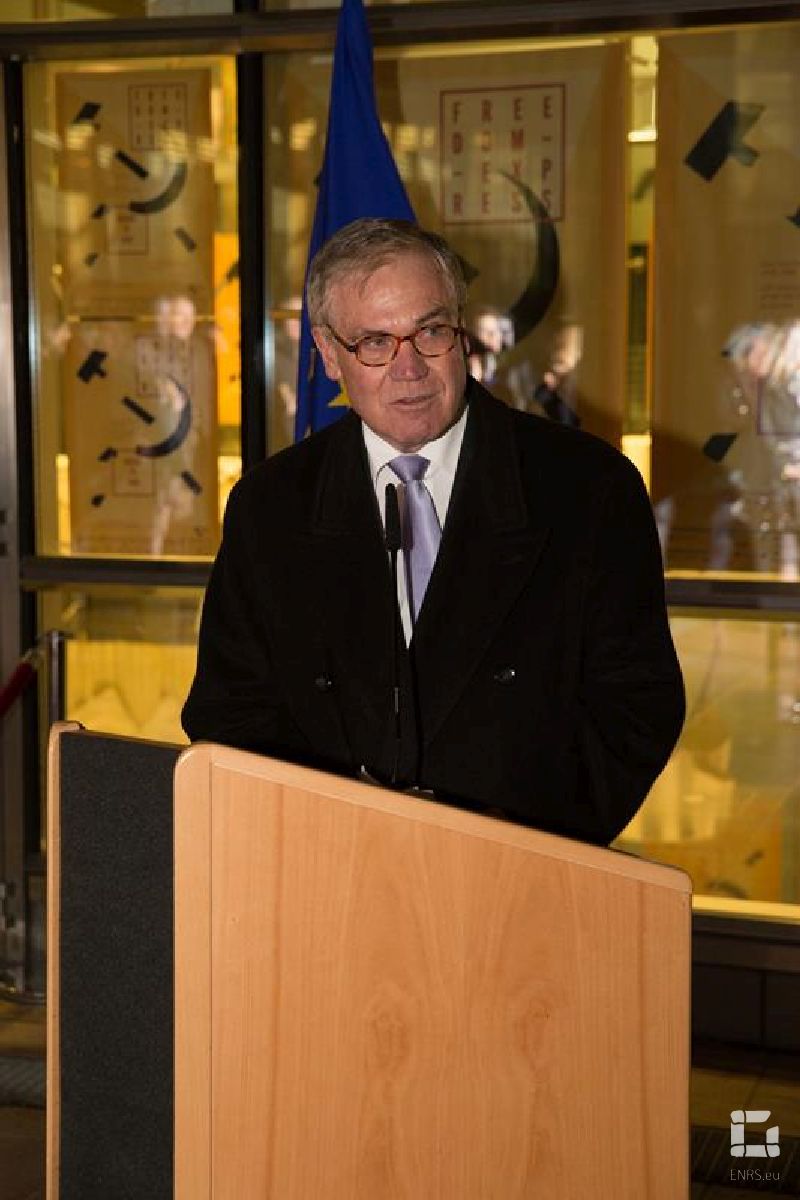On 18 November, 2014 an official opening of the open air exhibition ‘Freedom Express’ took place on Esplanade Solidarność 1980, in front of the European Parliament.
Amongst speakers there were Martin Schulz, President of the European Parliament, Mr Rafał Rogulski - director of ENRS' Secretariat, Dr. Eckart Cuntz - Ambassador of Germany to Belgium, Willy Decourty, Bourgmestre of Commune of Ixelles, Mr Pavel Svoboda - Member of European Parliament and Mr Bogdan Zdrojewski - Member of European Parliament.
‘The exhibition we are opening today is situated on the place in front of the European Parliament called the Esplanade of Solidarność. It could not be more symbolic because Polish Solidarność was the beginning of one of the biggest changes in history of the European continent.’- said Martin Schulz during the official opening of the Freedom Express exhibition in Brussels.
 fot. Sebastien Dartois/ENRS
fot. Sebastien Dartois/ENRS
Martin Schulz, President of the European Parliament underlined that during 80’s when the fight for freedom started, nobody, no secret service, no army, no police forces could stop it. He also said not to forget courageous people who spent years in prisons, who were tortured, excluded from the society, banned from their professions and sometimes even paid with their lives having fighted against dictatorship. President of European Parliament admitted that ‘our freedom of today is a result of the fight of these people’.
Martin Schulz also said: ‘I am very happy that this exhibition on the Square “Solidarność” is opened tonight. And if you allow – one addition and element – we, the Germans, we are very grateful, not only that we could unify our country, which was a divided country, but the seven million citizens of the former German Democratic Republic joined the European Community on 3rd October 1990, less than one year later they became citizens of the European Union - a privilege for which the Hungarians, Polish, Baltics, Czechs, Slovaks, Slovenians had to wait fourteen years longer.(…)’
 fot. Sebastien Dartois/ENRS
fot. Sebastien Dartois/ENRS
Dr. Eckart Cuntz, Ambassador of Germany to Belgium, mentioned that: ‘(…)now we have a complete exhibition, showing all the events in all the ten countries, it’s really worthwhile watching it, I can strongly recommend it. It’s called 1939 to 1989 and it recalls that we are in a year of commemoration of wars: WWI and also 75 years of the beginning of the WWII and then, what I would like to call an happy end to the story of wars. A happy end on the one hand, the founding of the European community, the European Union which now comprises 28 member countries, from East and West, North and South of Europe. And the happy end of the fall of the Iron Curtain. Many people who lived in Eastern part of Europe had to wait for a long time, in my own country, but also in all the other nine countries. But it was clear – the wish for freedom and democracy had always been there.’